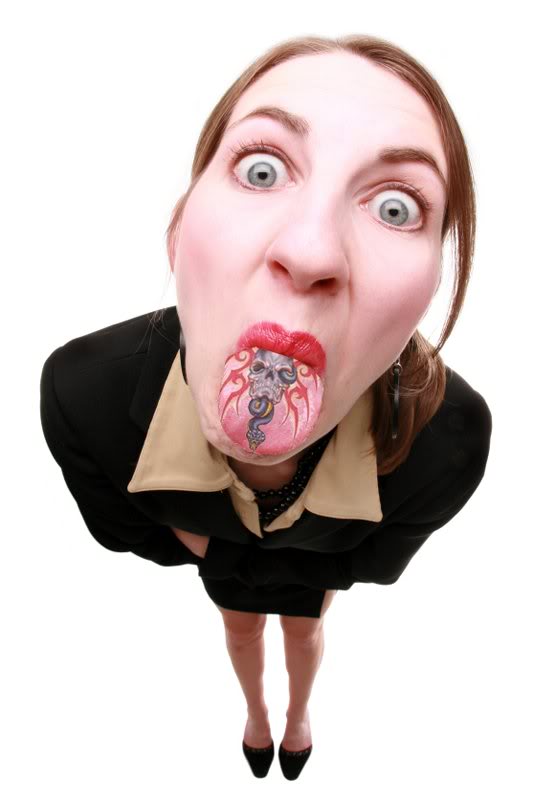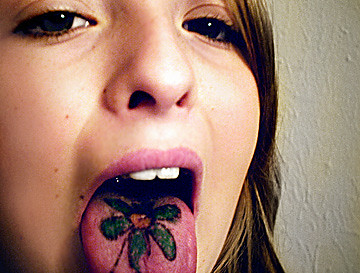 Tattoos are a hot commodity these days, is becoming more popular than they have ever been in the past. There are hundreds and thousands of different models and styles to choose, give you an opportunity to express yourself. Although they are very popular, the new trend is taking effect in the world of tattooing is known as language tattoos.
Tattoos are a hot commodity these days, is becoming more popular than they have ever been in the past. There are hundreds and thousands of different models and styles to choose, give you an opportunity to express yourself. Although they are very popular, the new trend is taking effect in the world of tattooing is known as language tattoos.Although many are not familiar with the language tattoos, they have only begun to take shape. They resemble other designs and styles, even if they cover the muscle known as the language. The ones that cover the entire language, or a single region. In most cases, those who already have them, have chosen their language tattooed a certain color. Whether it's purple, orange, black or blue, language can be a variety of different colors.
The models that are poplar language stars with tattoos, tribal, and other forms and designs that cover an area of the tongue. Stars are popular with the lower area of the tongue, near the end. There are also models that can be further on the language, roughly in the middle of it. As the language ones are becoming more popular, more and more models are being implemented.
Regarding the procedure goes, it is very similar to getting a tattoo on any other part of the body. A tattoo needles involved perforation of the skin, depositing ink on the skin. The hands move very quickly, the breaking of the skin and allowing the pigment of the ink. The language, like the skin pigments swallow once the surface was punctured by the needle. Once the pigments in the ink are absorbed by the language, the color will remain there forever.
 Those who had the language ones in the past say they are not very painful. Unlike tattoos on the skin, the language is a giant muscle. A tattoo on the tongue is often described as a sensation of tickling sensation or numbness in the mouth. When the artist does tattooing, it will normally be a tool to keep the language. If you have ever had a piercing language, you know what it looks like. Once the language is, the artist will begin work. The process usually takes very long, as long as you hold still and not move.
Those who had the language ones in the past say they are not very painful. Unlike tattoos on the skin, the language is a giant muscle. A tattoo on the tongue is often described as a sensation of tickling sensation or numbness in the mouth. When the artist does tattooing, it will normally be a tool to keep the language. If you have ever had a piercing language, you know what it looks like. Once the language is, the artist will begin work. The process usually takes very long, as long as you hold still and not move.
If a language tattoo sounds interesting to you, the first thing to do is to find anartist in your area, which is in fact the experience. Not a lot of artists are familiar with the language tattoos, as they have only begun to surface. A language is a little one on the creative side-something that can not be seen every day in public.

